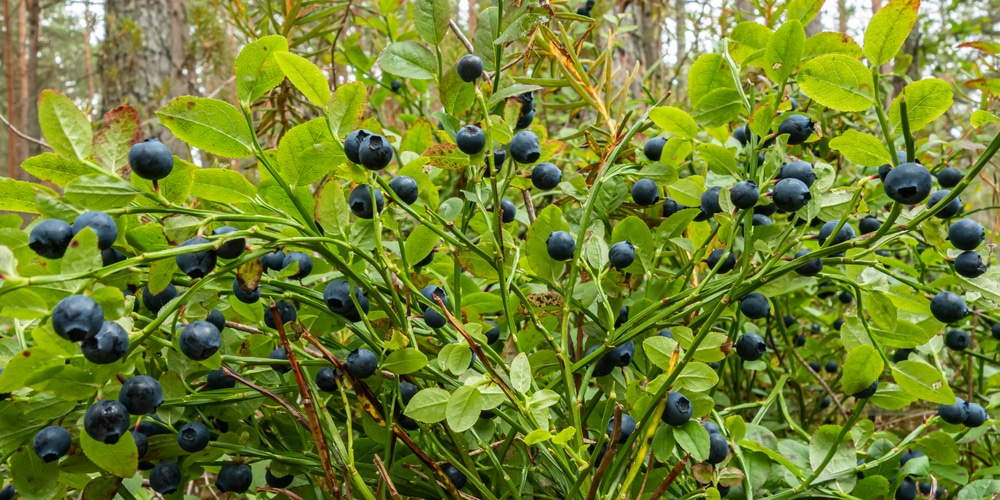Blueberry bushes are a welcome addition to a yard or garden. The fruit is rich in antioxidants and can last up to 50 years with proper care and as long as they’re in the right environment.
You might be asking, ‘when to plant blueberries in Georgia?’. The answer is that you should plant them during fall season, and early spring at the latest. By the time summer comes the roots will have developed and they’ll be thriving by then.
We’ll also discuss the best blueberry species you can grow in the Georgia region.
When Should I Plant Blueberries in Georgia?
For those who live in Georgia and wish to grow a blueberry bush, you’re in luck. The climate in the region is conducive to growing blueberries. The Southern location, with its long and hot summers and short winters are actually great for the sun-loving plant.
Keep in mind though, that you should still meet at least the minimum requirements for blueberries. This means plenty of sunlight, a slightly acidic soil and adequate space between them.
Blueberries are considered perennial shrubs, and each variety has its own ripening times. Some will bear fruits in the early season, while others tend to produce them late season. All of them will need at the very least 6 hours of direct sunlight, so you’ll need to pick a spot that gets that minimum or more. Remember, the more sunlight they have the more fruit they tend to produce.
Aside from getting generous amounts of sun, blueberries love an acidic soil and spacing of about 5 to 6 feet from each other. The soil and site should be well-draining, and it’s a good idea to add mulch to discourage grass and weeds.
It’s recommended that you get two or more species for larger fruit. You can start by getting blueberries bare-root or in containers and those that are within 1 to 3 years old.
Georgia Hardiness Zone and First and Last Frost Date
The state of Georgia lies within the USDA hardiness zones 6 to 9.
On average, the state has around 205 days in-between last and first frost, and there’s a 10 percent chance that frost might occur on the expected dates. It’s recommended that you regularly check your local weather if you’re planning to plant blueberries.
The earliest first frost date tends to occur in Blairsville, followed by Rome, Waycross, Macon, Augusta, Atlanta, Albany, Columbus, Savannah and finally Brunswick. The earliest last frost date tends to occur in Brunswick, followed by Savannah, Columbus, Albany and in reverse order.
Blueberries don’t like the cold, and knowing the hardiness zone of your city and first and last frost dates will give you an idea of when to best plant them. As a rule, you should start in fall but not during late spring.
The Best Blueberry Species to Grow in Georgia
Planting blueberries in Georgia should be an enjoyable affair as the climate is perfect for them. However, you might be asking, ‘which species of blueberry is best in Georgia?’
The answer is to get rabbiteye blueberries, and several of them. Rabbiteyes are divided into three different ripening times- early season varieties include the Titan, Vernon, Premier, Climax and Alapaha, while mid-season types include the Tifblue, Powderblue and Brightwell. Late season producers include the Centurion, Baldwin and Ochlockonee.
For those who want the biggest fruit yields, it’s recommended that you try the Vernon and the Titan variety. Alternatively, you can try the native highbush blueberry, which is tough and can withstand foliage, flower and fruit diseases. The cultivar also grows pretty well within all three growth zones in the region.
Remember to allocate at least 5 to 6 feet of space between plants. Blueberry bushes tend to spread from their original location outwards via suckering. New shoots will come out of the parent plant and grow into its own clump as time goes by. Blueberry plants mature in about 8 years and will grow to a maximum 15 feet and 10 feet in height and width, respectively.
Conclusion
Generally, blueberries grow up to 6 feet tall, and you might witness pure white flowers that cluster come springtime. When harvest season comes, pick the ripe blueberries by hand and enjoy!
Related Article: Bad Blueberry Companion Plants

